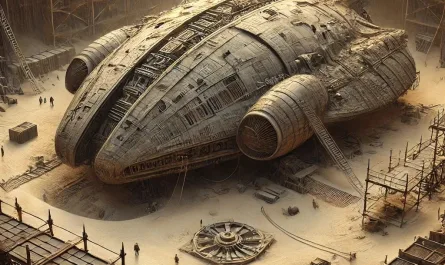Colonizing Mars – The Next Frontier for Humanity
The idea of colonizing Mars has long been a staple of science fiction, but in recent years, it has become a serious goal for space agencies and private companies. With technological advancements and growing interest in interplanetary travel, Mars could one day become humanity’s second home.
Why Mars?
Mars is the most Earth-like planet in our solar system, making it the best candidate for colonization. It has a thin atmosphere, the presence of frozen water, and a day length similar to Earth’s. While the environment is harsh, scientists believe that with the right technology, Mars could be made habitable.
Challenges of Martian Colonization
Despite its potential, settling on Mars presents significant challenges:
- Radiation Exposure: Without a strong magnetic field, Mars exposes settlers to harmful cosmic radiation.
- Extreme Temperatures: Mars is much colder than Earth, with temperatures dropping below -80°F (-62°C) at night.
- Lack of Oxygen: The Martian atmosphere is mostly carbon dioxide, requiring artificial life-support systems.
- Sustainability: Food, water, and resources must either be transported from Earth or produced on Mars.
Terraforming Mars – Can We Make It Like Earth?
Some scientists propose terraforming Mars by thickening its atmosphere and introducing greenhouse gases to warm the planet. Other ideas include deploying mirrors to reflect sunlight or using bacteria to produce oxygen. While exciting, these methods require centuries to take effect.
Space Agencies and Private Missions
Organizations like NASA and SpaceX are actively working on Mars missions. SpaceX’s Starship aims to transport humans to Mars in the near future, with plans to establish a self-sustaining colony. NASA’s Artemis program and robotic missions are also laying the groundwork for future human exploration.
The Future of Humanity on Mars
Colonizing Mars could be the first step toward becoming a multi-planetary species. It would ensure humanity’s survival against Earth-bound threats, promote scientific discovery, and push the boundaries of human ingenuity.
Conclusion
While colonizing Mars remains a distant dream, each new mission brings us closer to turning science fiction into reality. The Red Planet could one day be our next home, opening a new chapter in human history.
Stay tuned for more explorations into space and archaeology!


